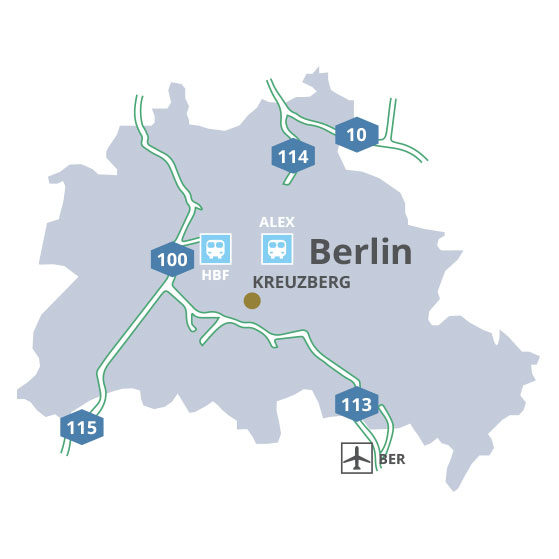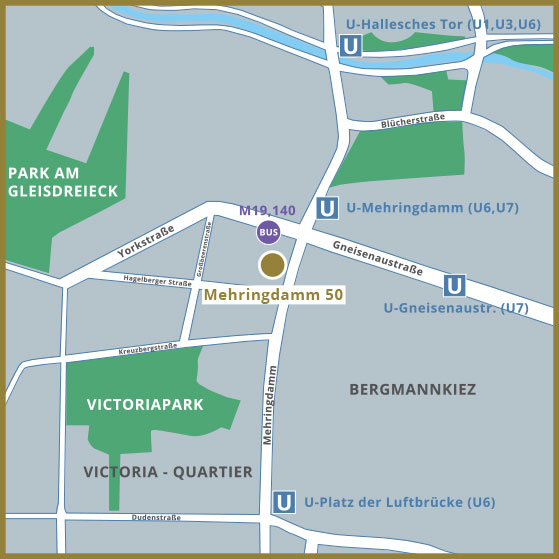Real estate
Property purchase agreement
Contracts for the transfer of real estate (land, condominiums) and for similar rights as well as for the creation of certain rights (land charges, residential or usufructuary rights, etc.) require notarization or certification.
The involvement of a notary public in these legal transactions, which are generally also economically significant for the parties involved, is intended to ensure that, for example, in the case of a purchase agreement for a property, none of the contracting parties "makes unsecured advance payments or legal acts". Accordingly, the buyer should not pay the purchase price to the seller until it is legally ensured that the buyer can acquire unencumbered ownership of the property - as agreed in the contract. Similarly, the seller should not have to hand over the property until he has actually already received the purchase price.
Thus, ownership of a property does not pass as soon as the transfer agreement is notarized, but only when the buyer is later entered in the land register as the new owner.
After the notarization of the purchase agreement, the notary public will first regularly arrange for the entry of apriority notice of conveyance for the buyer in the land register. This prevents the seller or any of the seller's creditors from making entries in the land register that could impair or completely prevent the buyer's acquisition of ownership.
In most cases, the sold property is also encumbered with a land charge, which the seller had once provided as security for a loan taken out with a bank for the purchase of the property. In this case, the notary will request a deletion authorization for the land charge from the corresponding bank, which the bank will transmit to the notary in trust - insofar as the loan has not yet been fully paid off - with the proviso that the notary may only request the deletion of the land charge when the bank has received the outstanding balance (from the purchase price to be paid later by the buyer).
The notary also creates for the buyer, who finances the purchase price through a bank, the corresponding land charge on the property to be sold, without which the bank would not pay out the loan necessary for the payment of the purchase price. Here, the notary legally ensures that the buyer's bank financing the purchase price may only use this land charge as security on the seller's property if the seller has actually received the purchase price.
In addition, the notary obtains any necessary approvals and/or consents for the effectiveness and execution of the contract (e.g. certificate of the municipality on the non-exercise of pre-emption rights in the case of real estate, if necessary administrator consents in the case of condominiums, etc.). Only when all the necessary conditions have been met to ensure that the buyer can acquire ownership of the property without encumbrances by paying the purchase price is the purchase price due to the buyer.
As a rule, upon receipt of the purchase price by the seller, the transfer of possession (handover of keys) to the buyer also takes place, even if the actual transfer of ownership (possession and ownership are legally different categories!) can only be applied for later. This also requires, for example, a certificate from the tax office that any land transfer tax due is either not owed or has been paid by the buyer.
In order to draw up a draft contract of sale for a plot of land, we generally require the following information, which you should send to us in advance by e-mail:
- land register designation (land register of ? sheet ? of the district court ?
- complete names, dates of birth, places of birth and addresses of the buyer and seller according to their identity cards, the German tax identification numbers of the parties involved if applicable, e-mail addresses and telephone numbers
- the indication whether the respective parties to the contract are single or married/partnered? If yes: Has a marriage contract/partnership agreement provided for the separation of property, if applicable? Are almost all of the assets disposed of?
- the amount of the purchase price
- the indication whether the subject matter of the contract is free or rented or whether it will be used by the seller himself until handover?
- Is an energy certificate available? If so, what is the date? (if necessary, ask the property management)
- Bank account details of the seller (for payment of the purchase price)
and additionally in the case of a condominium:
- name and address of the property management
- Amount of the current housing allowance
- Copy of the declaration of division with community regulations - (your property management company may be able to provide you with this as a pdf file)
Note: The notary's activity is subject to fees. The fees are based on the GNotKG Act and are the same for all notaries in Germany. The issuance of a notarization order is associated with costs, even if the notarization does not take place later.
Gift contracts, anticipated succession
This refers to gifts, mostly of real estate, which are transferred to the persons also appointed as heirs (mostly one's own children) during one's lifetime in order to take advantage of tax allowances.
The pure transfer is essentially carried out according to the same regulations as for other real estate transfers (see the corresponding explanations on real estate law), whereby, as a rule, no purchase price is to be paid and security means such as a priority notice can be waived due to the close family relationships.
In addition, however, a right of retransfer is frequently reserved for the transferor (donor) in certain cases (private insolvency of the donee, sale or encumbrance of the property without the consent of the transferor).
Frequently, the seller (donor) also reserves a right of use (usufruct/residential right) and - if the property has not yet been paid off - arrangements must be made as to whether the seller should continue to bear the loan installments, etc.
Furthermore, it must be clarified whether this donation is to be offset against the mandatory portion or inheritance portion of the donee or whether, if applicable, the donee declares a waiver of the mandatory portion in return for the lifetime transfer, so that the donor is freer to regulate his or her succession.
In order to prepare the draft for the corresponding transfer agreement, we generally require the following information, which you should send to us in advance by e-mail:
- land register designation (land register of ? sheet ? of the district court ?)
- complete names, dates of birth, places of birth and addresses of the donor and the donee according to the identity card, the tax identification numbers of the parties involved, e-mail addresses and telephone numbers
- the indication whether the respective contracting parties are single or married/partnered? If yes: Has a prenuptial agreement/partnership agreement provided for the separation of property, if applicable? Are almost all of the assets disposed of?
- indication of whether the subject matter of the contract is vacant or rented out or whether it will be used by the seller himself until handover?
and additionally in the case of a condominium:
- Name and address of the property management
- amount of the current housing allowance
- Copy of the declaration of division with community regulations - (your property management company may be able to provide you with this as a pdf file)
How to get to us

By car
By public transport
Alternatively, you can reach us by bus M19 (station U-Mehringdamm) or by bus 140 (station Yorckstr./Großbeerenstr.).
Directions PDFJens Michaelis - Notary | Lawyer
Mehringdamm 50 | 10961 Berlin
Tel.: 030 68 83 65 89 | Fax.: 030 7889 7245
notar[at]j-michaelis[dot]de (notary issues)
ra[at]j-michaelis[dot]de (lawyer issues)

